Beach Campsites in the UK – Where to Pitch and How to Enjoy
If you love the sound of waves and the smell of salty air, a night on the sand is the perfect escape. This guide shows you the best beach campsites, what you need to know before you set up, and simple tricks to make your stay comfortable.
Legal basics – can you really camp on a public beach?
In most of the UK you can’t just pull out your tent on any public beach. Local councils often have rules to protect the sand and keep crowds under control. Look for signs that allow camping, or check the council website before you arrive. If you’re unsure, a small, low‑impact set‑up and a quick tidy‑up usually keeps things smooth.
Choosing the right spot – comfort meets scenery
Pick a beach that offers some shelter from wind – a dune or a clifftop can block gusts and keep your fire safe. Make sure the tide won’t wash over your gear; a quick check of the tide table can save a lot of hassle. Campsites with nearby facilities like toilets or a small shop are a bonus, especially if you’re traveling with kids.
One of the most loved spots is the stretch around Carolina Beach in the US, but in the UK you’ll find similar vibes at places like Whitby, Porthcawl, or the secluded bays of Cornwall. These locations give you space to spread out and still feel close to the water.
When you set up a beach tent, use a sturdy sand anchor or a weighted bag. A simple DIY anchor can be a filled water bottle or a sandbag you bury a few inches deep. This stops the tent from blowing away when the wind picks up.
Don’t forget the basics: a sleeping pad, a warm sleeping bag, and a headlamp. The sand can get chilly at night, so a thin insulated layer underneath your sleeping bag makes a big difference. A compact camping stove is handy for hot drinks, but keep flames low and away from dry grass.
If you want to add a little luxury, consider a small beach canopy for shade during the day. It’s easy to pack and gives you a dry spot to eat or read. Just remember to take it down before sunset to avoid attracting attention.
For those who wonder if a beach tent is worth it, the answer is yes – as long as you respect the rules and leave no trace. A quick clean‑up of any rubbish and a sweep of the sand leaves the spot as you found it.
Planning ahead can also save money. Some beaches charge a modest fee for a campsite, while others are free but fill up fast in summer. Arriving early in the morning gives you first pick of the best spots.
Finally, enjoy the simple pleasures: the sound of surf, a night sky full of stars, and the feeling of waking up to sunrise on the water. With a little preparation, beach camping becomes a memorable part of any UK road‑trip adventure.
-
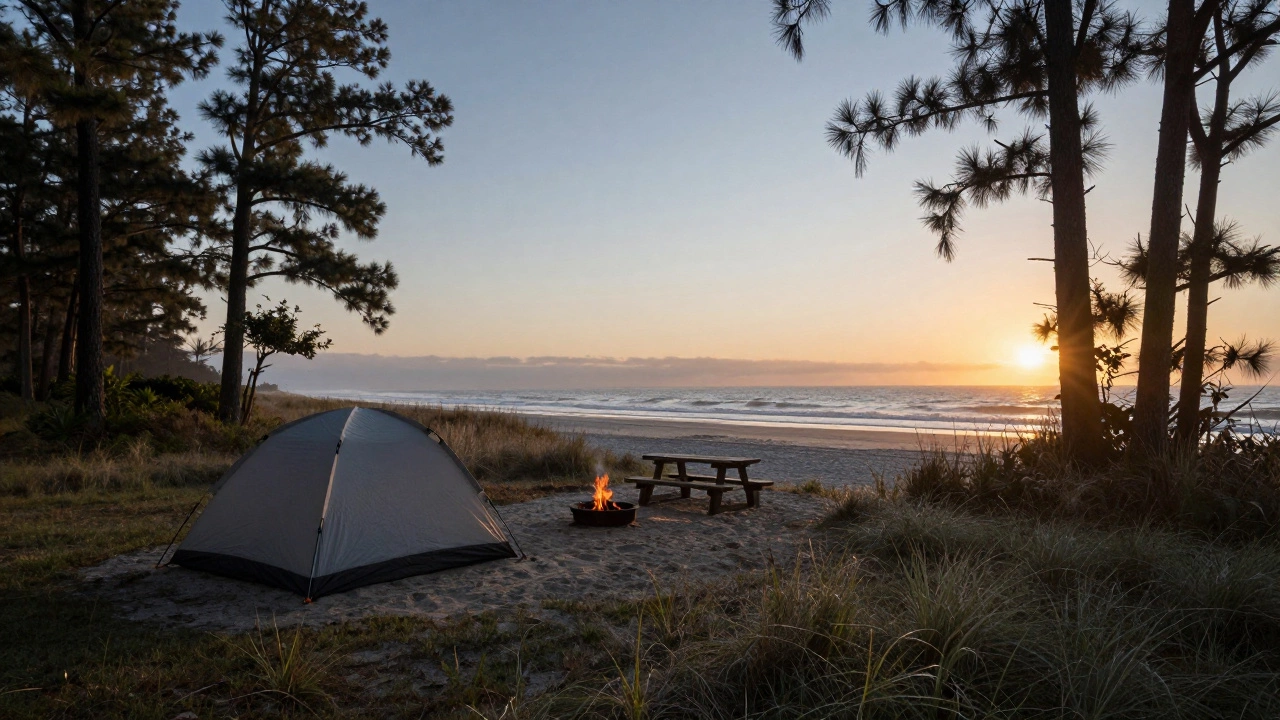 VIEW POST
VIEW POSTCan You Camp Overnight on Carolina Beach? Here’s What You Need to Know
Jan, 29 2026|0 CommentsYou can camp overnight on Carolina Beach-but only in one designated spot. Learn the rules, costs, gear tips, and how to avoid fines. Get the full guide to camping legally at Carolina Beach State Park. -
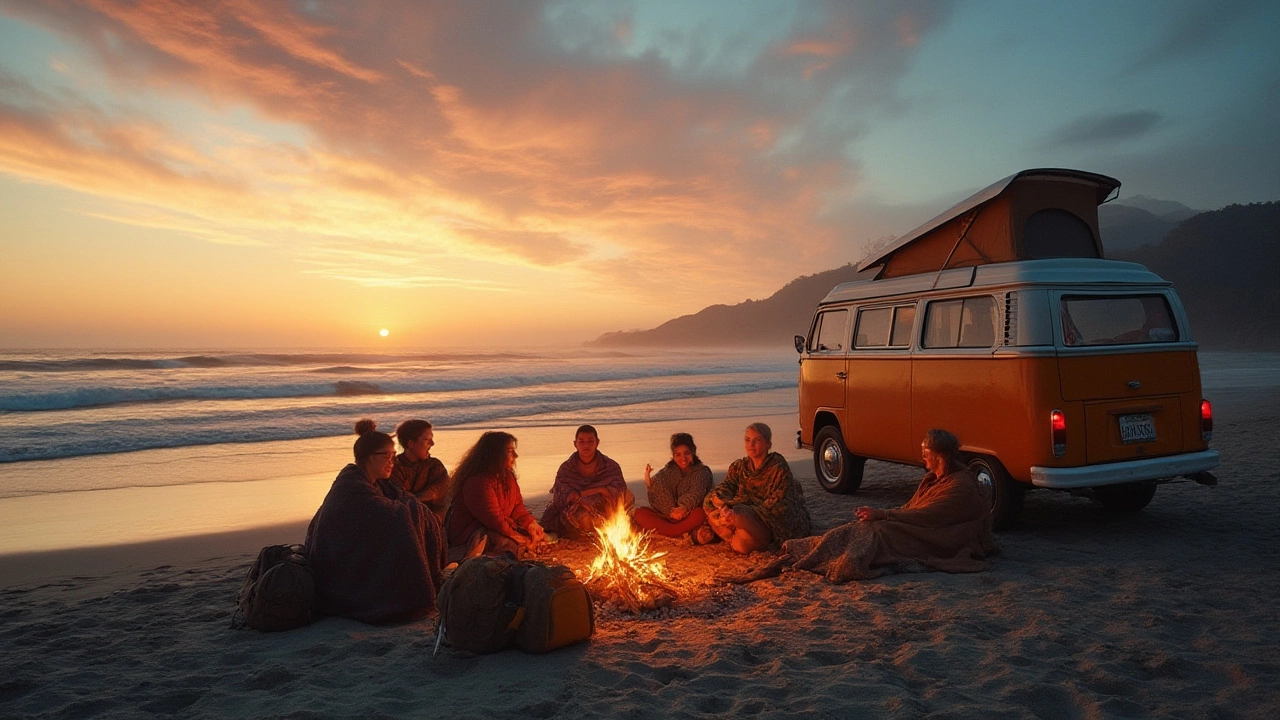 VIEW POST
VIEW POSTFree Beach Camping in California: Where and How to Go Wild Camping by the Coast
Jul, 17 2025|0 CommentsCurious about free beach camping in California? Discover where it’s actually possible, the challenges, best hidden spots, legal risks, and realistic tips for your next coastal campout. -
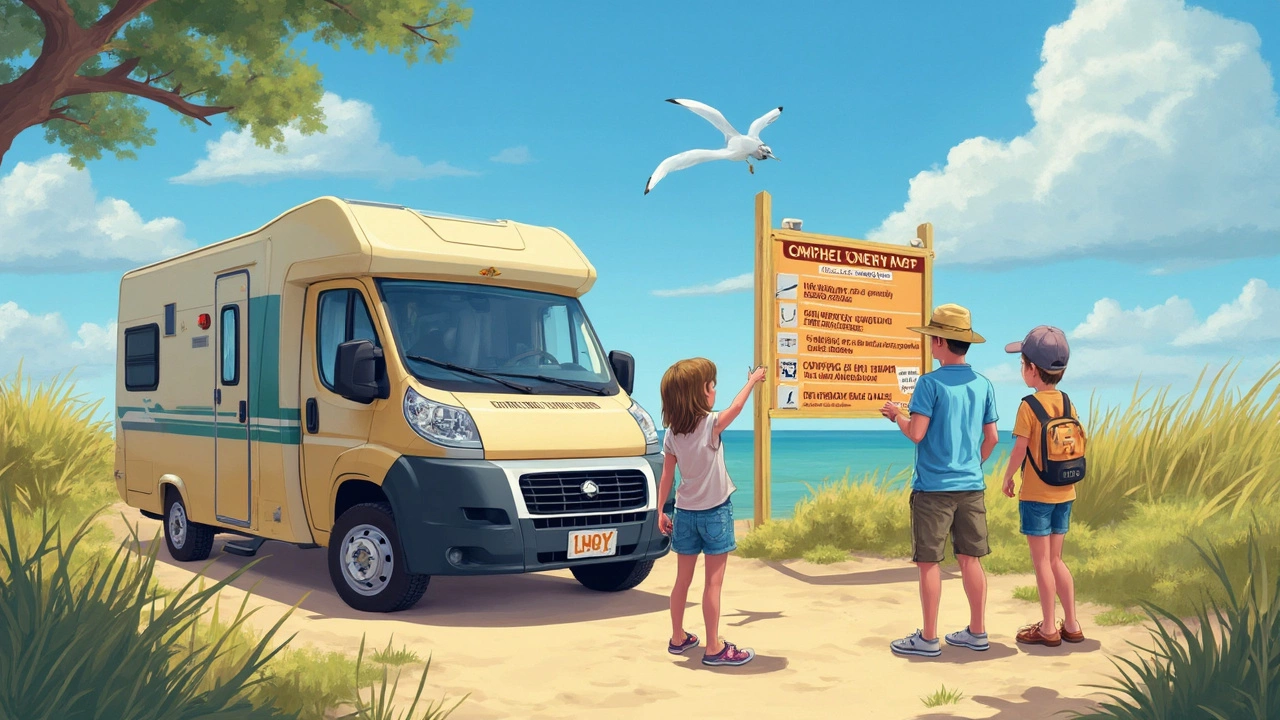 VIEW POST
VIEW POSTTybee Island Camping: Are Tents and RVs Welcome?
Jun, 19 2025|0 CommentsThinking about camping on Tybee Island? Here’s what you need to know before pitching a tent or pulling up in your RV. Tybee isn’t like every other coastal spot—local rules are strict, and some surprises catch visitors off guard. Discover your options, from nearby campgrounds to clever alternatives. Learn a few tips that could save your trip. -
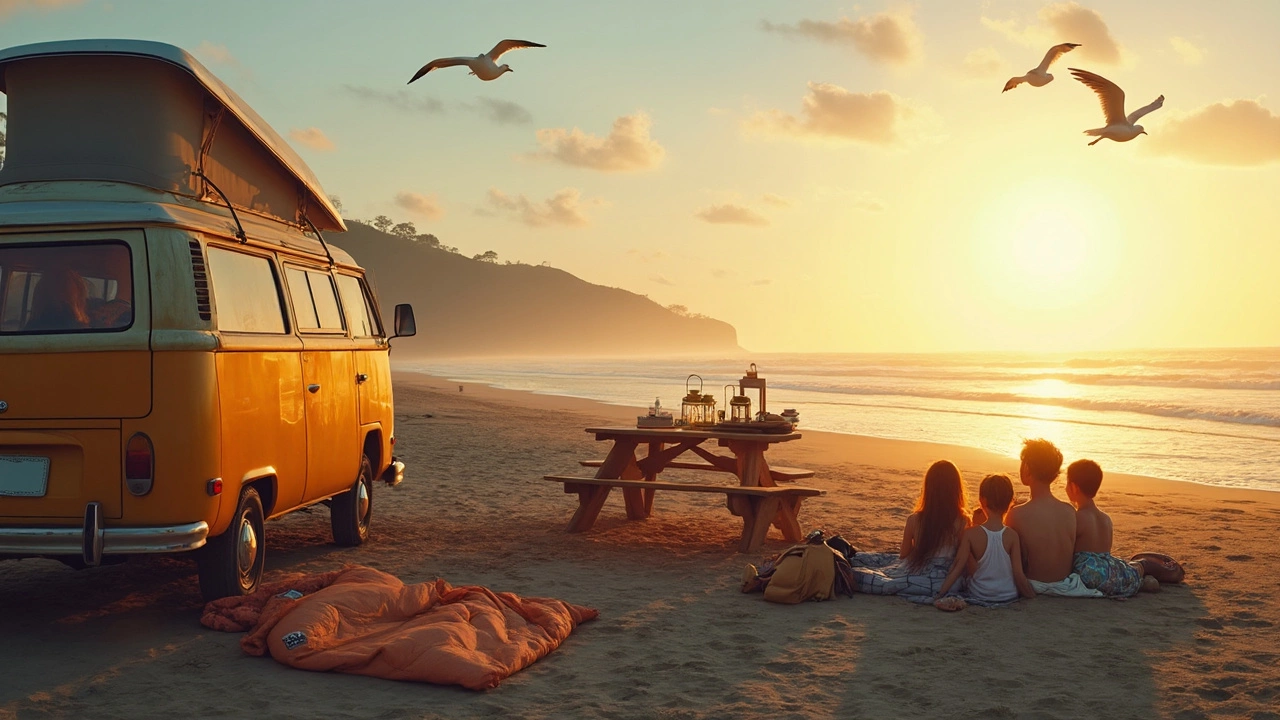 VIEW POST
VIEW POSTWhere Can I Park My Car and Sleep in California? Beach Campsites Guide
Jun, 12 2025|0 CommentsLooking to park your car and sleep right by California's ocean? This article covers the best legal beach camping spots, explains local parking laws, and shares hands-on tips to keep you from waking up to a ticket. Get the run-down on safe, affordable, and family-friendly places to catch some waves and some Z’s. Plus, find out the quirks of popular camping beaches and things everyone forgets to bring. It's everything you need before you haul your cooler and sleeping bag to the coast. -
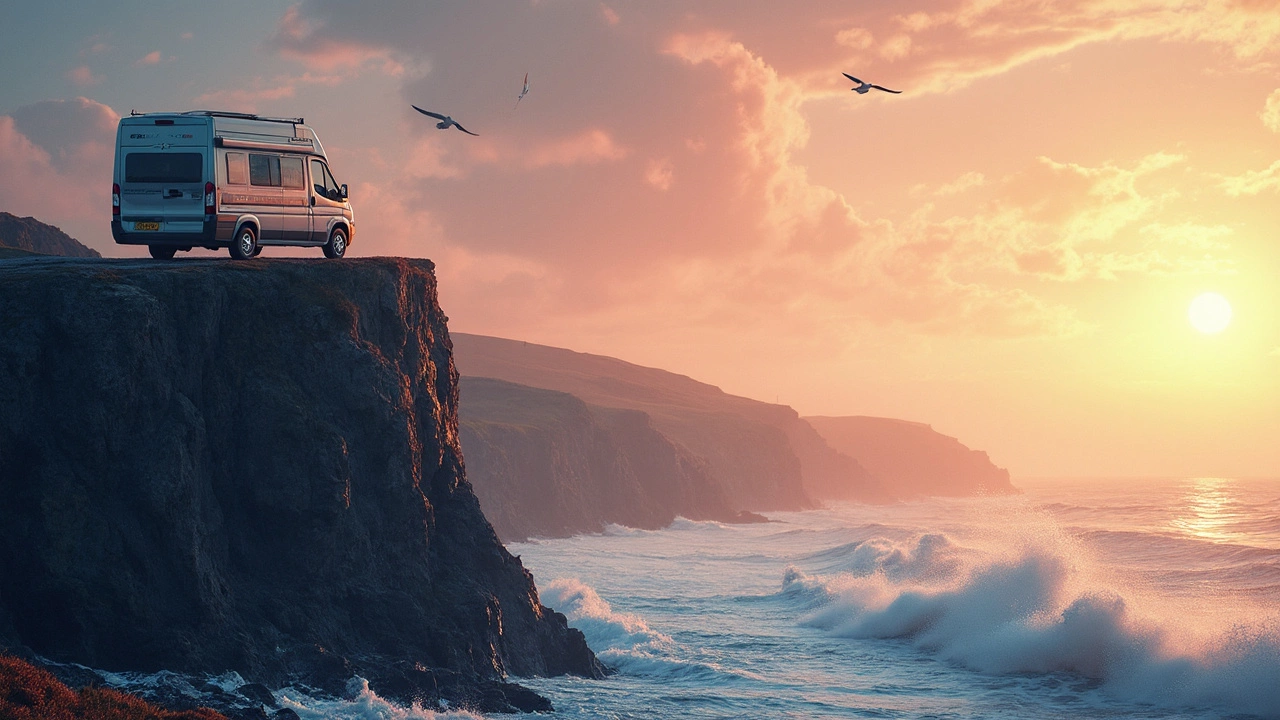 VIEW POST
VIEW POSTUnpacking Boondocking: Off-Grid Beach Camping Explained
Feb, 16 2025|0 CommentsBoondocking, also known as off-grid camping, offers adventure seekers the unique experience of camping in remote and undeveloped beach areas. This style of camping emphasizes self-sufficiency, as it involves camping without connections to utilities like water or electricity. It appeals to those craving solitude and a deeper connection with nature. Important tips include checking local regulations, ensuring proper waste management, and having a reliable power source. For beach lovers, boondocking provides an undistracted immersion in coastal beauty. -
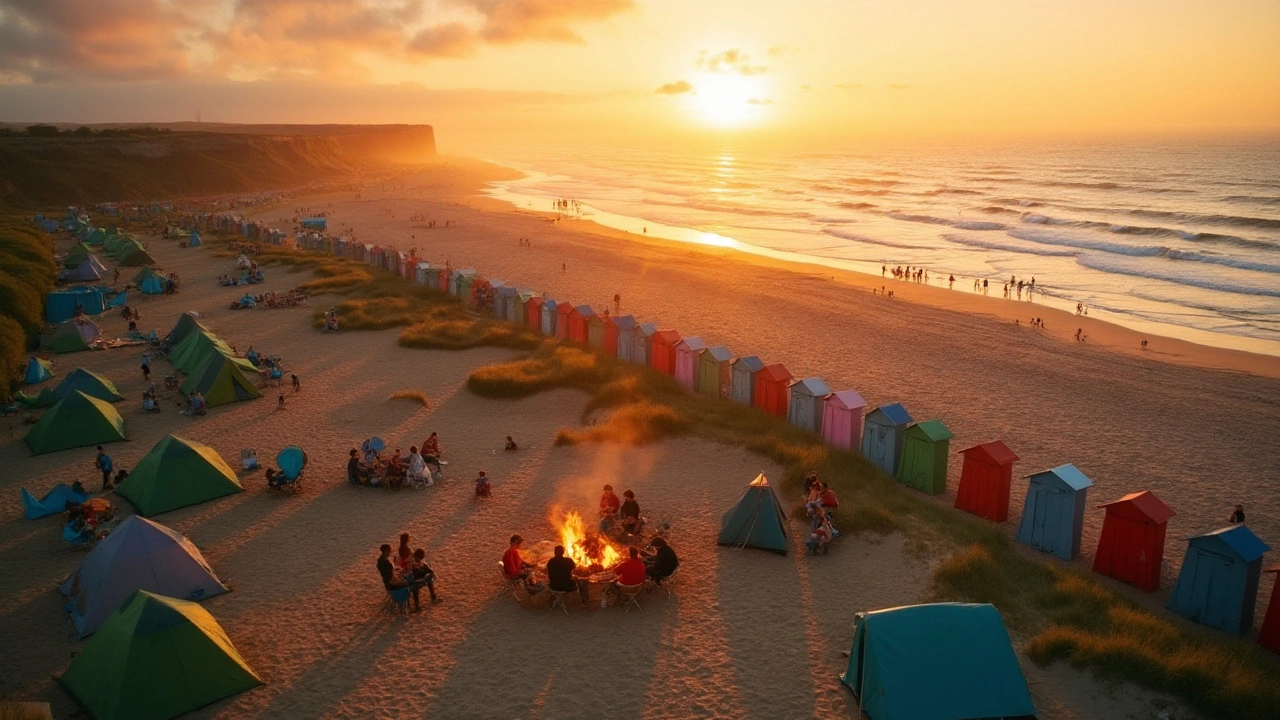 VIEW POST
VIEW POSTUnderstanding Ownership and Usage of Ocean Lakes Campsites
Nov, 4 2024|0 CommentsWhen it comes to the concept of owning land in Ocean Lakes, it's important to understand the unique nature of these coastal retreats. This article explores the intricacies of campsite ownership, the benefits it brings, and tips for making the most of these scenic spots. It's a captivating look at one of the most sought-after destinations for beach lovers. We'll also discuss legal and practical considerations for potential buyers. With this insight, campers can make informed decisions about investing in their piece of paradise.